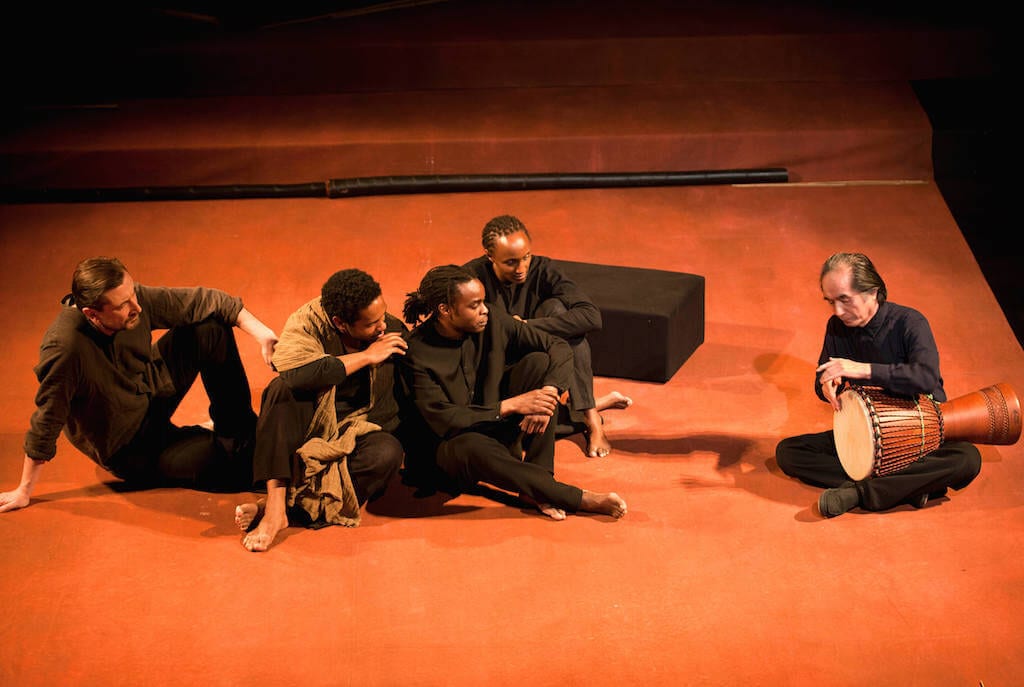We meet newly established King Yudishtira (Jared McNeill) on the battlefield strewn with the bodies of his army and enemy. As he scours the battlefield and eases those he knew into Death’s arms, many parables are told to him, shaping the ruler he grows to be. However, unlike the previous King, his uncle (Sean O’Callaghan), Yudishtira is not blind. He is plagued by inner turmoil and the feeling that the battle is not yet over, that his victory has not left things any clearer than they were before.
I took my seat in awe of the pedigree linked to Battlefield. Its inspiration, the Mahabharata, which is not only an Indian book but an epic, Peter Brook’s status as a living legend and not to mention the Young Vic’s reputation. What also strikes me is the global nature of this production; the Buenos Aires designer, the Japanese live musician and the eclectic mix of actors. This is developed through the African setting and the ancient Indian epic on which the text is loosely based. Yet, despite all the inclusivity of setting, cast, production crew and original text (not to mention the integral global theme of war), I felt excluded. Nothing is more frustrating than striving for comprehension and failing completely. I realised before the performance had started that it was a message play, classic Brook, and wished to make the audience think – but what’s the message, what are we supposed to think?
There is not a weak link in the acting troop, each bringing unique qualities to the stage, the result of which is mesmeric. Each individual has an extraordinary presence, fitting for the moral guidance they impart upon the audience – we follow/take heed of anything they say. However, as well as the much needed gravitas that the play requires, there is also an endearing playfulness to each individual’s performance. Their staging of the parables heightens the theatrical experience with much needed comic relief.
Regardless of these charming portrayals of the parables, they did not seem to build or amount to an overall message or presiding point within the piece – leaving me to question their relevance. Does Battlefield mean to expose the fickle forgetfulness of humanity and the unending cycle of destructive war and new hope through changed ideology? Is there a deeper racial message intended within the actors’ casting, the minority races superseding the colonial white man? Is it a story of Yudishtira’s spiritual journey through the loss and renewal of faith? Or are we meant to recognise all of these concepts within the piece?
I exited the theatre unsure of what I was meant to be questioning, feeling and experiencing. The canvas is left too wide open to prompt meaningful, in depth reflection and in consequence, I was utterly bemused and baffled.

